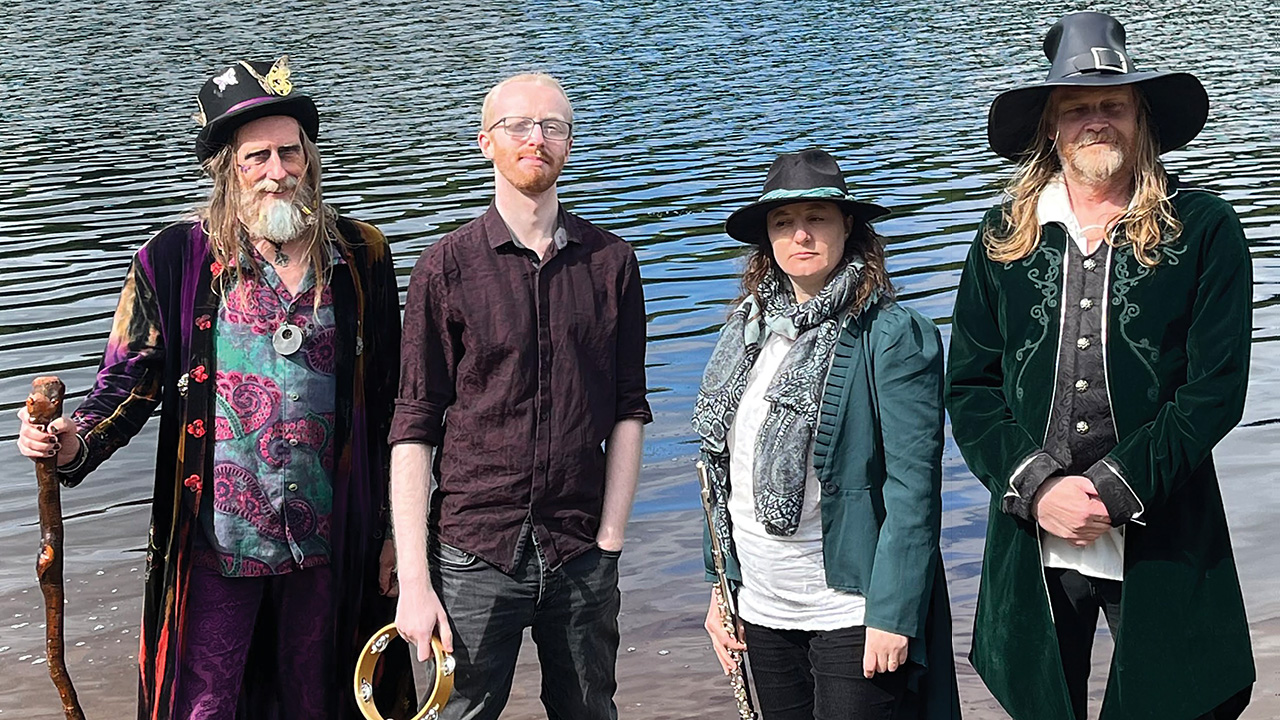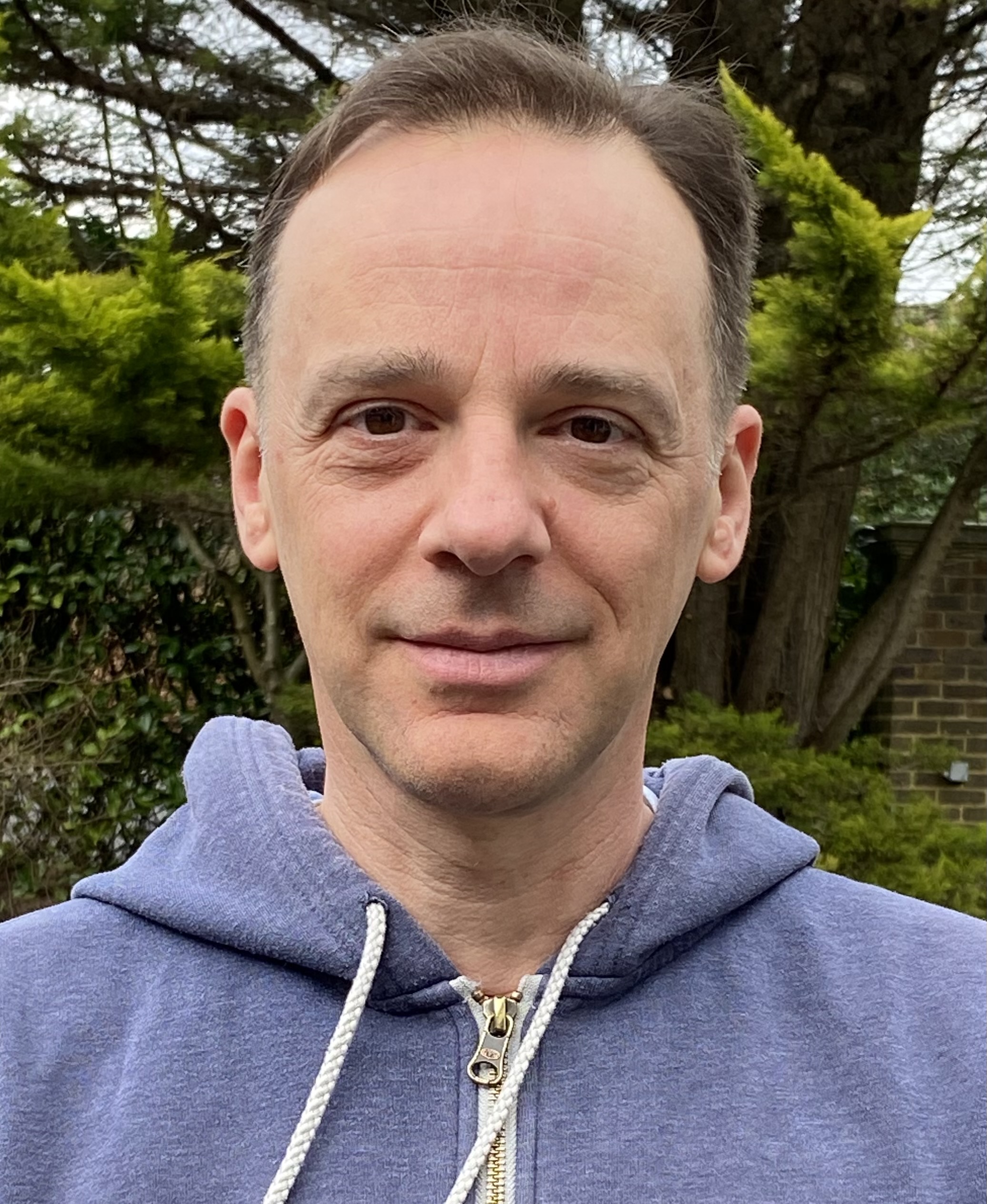Sheffield-based 80s proggers Haze have returned with a new studio album, The Water’s Edge – their third since 2013 comeback record, The Last Battle. Prog catches up with three-quarters of the band to discuss their DIY ethos, the curse of being musically unclassified, and playing to Cumbrian sheep farmers.
Formed by brothers Paul and Chris McMahon in Sheffield way back in 1978, Haze have been a fixture of the music scene in a career spanning six decades – albeit with the occasional interregnum.
But to cut to the chase, do the ever-eclectic outfit regard themselves as prog? Lead vocalist/guitarist Paul McMahon responds: “It’s the closest description. We’re certainly not a heavy metal band – more of a rock band that’s strayed into prog quite often. It never quite spills into pop music, because it’s too long and the ideas are developed deeper. We may drop in something that’s vaguely metal or folk or from ambient – anything that interests us.”
Paul’s wife, fiddle and flute player, Catrin Ashton, says Haze aren’t overly concerned about the progressive scene. “We’re too old for creating a sound or being a part of any movement. It’s more that we’re in the service of the song. The song goes where it wants to go – and that could be anywhere.”
Bassist/keyboardist Chris reports: “We started out trying to copy the bands we liked; basically Black Sabbath, Uriah Heep and The Moody Blues.” Subsequently the brothers were seduced by Genesis, Van der Graaf Generator, King Crimson and Soft Machine. “We’ve always pretty much just followed our taste in music,” Chris adds.
While the 80s saw them lumped in with the neo-prog scene, there’s a significant stylistic gap between them and the likes of Marillion, IQ, Pendragon, Pallas et al. Haze have arguably always been far more diverse than any of those bands; and Chris suggests their 1984 album, C’est La Vie, provided early evidence of their variety. “There’s two full-fat-prog Van der Graaf-esque epics, a pop song, a ballad and a rock song.”
Perhaps Haze might have proved more successful had they been prepared to focus more tightly. “We’ve occasionally discussed it,” Chris says. “We could chuck out all the complicated ideas and become a pop band, but we have no desire to do that – just as we have no desire to chuck out all the ideas that don’t fit with being a prog band.
“We see prog as a broad church. And to me, a band that dabbles in a lot of genres is as prog as you can get. I don’t think there should be a template of, ‘This is prog: push this button and you get prog.’”
You never know what we’re going to be playing. It’s always different, always fresh – it’s joyful
Catrin Ashton
Haze do recognise that their musical diversity is a double-edged sword.“Commercially, it’s a curse,” says Paul. “You can’t say, ‘Go and see Haze –you will get this.’ On the new album there’s a straightforward ballad with acoustic guitars, one song that’s got everything in it over 11 minutes, a quite aggressive Who-type song, classic prog, Van der Graaf prog, Zeppelin blues with Jon Lord-type playing...”
“But as a musician it’s a blessing,” Catrin interjects, “because it’s never boring. You never know from one gig to the next what we’re going to be playing. It’s always different, always fresh – it’s joyful.”
Their eclecticism has never been reined in by third parties. “We’ve never had management,” Paul says. “So we’ve never had anyone saying, ‘Look, guys, you’d do a lot better if you did this.’ It’s always been the people playing the music making the decisions. Which commercially may not be the best way of doing it!”
The band were at their most active in the mid-80s, when they sought an ultimately elusive record deal. “We were playing pubs all over the country, from Cornwall to Scotland,” says Paul. “We weren’t just doing the prog venues.”
Chris laughs: “We’ve done biker festivals, who booked us for some reason. We’d just say ‘Yes.’ Three or four songs in, when it was obvious we were actually about to die, we’d launch into some Status Quo and Lynyrd Skynyrd to save our lives.”
We weren’t preaching to the converted until we got to the Marquee and thought, ‘God, this is easy!’
Paul McMahon
“The first time we played the Marquee in London was such an eye-opener,” Paul adds. “There were about 400 to 500 people who genuinely wanted to hear nothing but prog! We were used to going to Ulverston in the Lake District, where there were half a dozen sheep farmers and a couple of dogs and you had to play to them. We played pubs where IQ or Pendragon probably wouldn’t have survived, let alone gone down well.
“We had to learn a tougher edge – how to play to an unresponsive audience. We weren’t preaching to the converted until we got to the Marquee and thought, ‘God, this is easy!’ Our one and only headline show and we were only four people away from selling out!”
Whatever slings and arrows of outrageous fortune have flown Haze’s way – including the retirement of long-serving drummer Paul Chisnell in 2013 – they’ve emerged largely unscathed, even if their business approach has probably constrained their career. “We’ve always been rubbish at communicating to people what we do; we’ve always had this cottage industry approach,” Chris admits.
“We do everything in-house and just get on with it. Maybe we’ve never had anyone with the ability or the vision to go, ‘You need to do this to become famous.’ We’ve always just written these songs, recorded them and played them live.”
He adds wryly: “We’ve always been good at living like students. We got good at being poor! But you don’t stop doing something that you love doing.”




